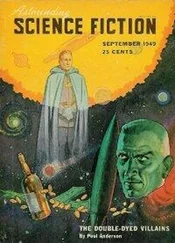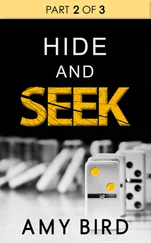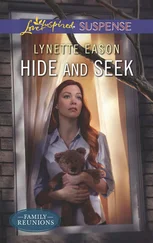Уилки Коллинз - Hide and Seek
Здесь есть возможность читать онлайн «Уилки Коллинз - Hide and Seek» весь текст электронной книги совершенно бесплатно (целиком полную версию без сокращений). В некоторых случаях можно слушать аудио, скачать через торрент в формате fb2 и присутствует краткое содержание. Год выпуска: 2005, Жанр: Классическая проза, на английском языке. Описание произведения, (предисловие) а так же отзывы посетителей доступны на портале библиотеки ЛибКат.
- Название:Hide and Seek
- Автор:
- Жанр:
- Год:2005
- ISBN:нет данных
- Рейтинг книги:5 / 5. Голосов: 1
-
Избранное:Добавить в избранное
- Отзывы:
-
Ваша оценка:
- 100
- 1
- 2
- 3
- 4
- 5
Hide and Seek: краткое содержание, описание и аннотация
Предлагаем к чтению аннотацию, описание, краткое содержание или предисловие (зависит от того, что написал сам автор книги «Hide and Seek»). Если вы не нашли необходимую информацию о книге — напишите в комментариях, мы постараемся отыскать её.
Hide and Seek — читать онлайн бесплатно полную книгу (весь текст) целиком
Ниже представлен текст книги, разбитый по страницам. Система сохранения места последней прочитанной страницы, позволяет с удобством читать онлайн бесплатно книгу «Hide and Seek», без необходимости каждый раз заново искать на чём Вы остановились. Поставьте закладку, и сможете в любой момент перейти на страницу, на которой закончили чтение.
Интервал:
Закладка:
But Valentine’s triumph did not end here. His picture of the treacherous cat stealing the household milk—entitled, by way of appealing jocosely to the strong Protestant interest, “The Jesuit in the Family,”—was really sold to an Art-Union prize-holder for ten pounds. Once furnished with a bank note won by his own brush, Valentine indulged in the most extravagant anticipations of future celebrity and future wealth; and proved, recklessly enough, that he believed as firmly as any other visionary in the wildest dreams of his own imagination, by marrying, and setting up an establishment, on the strength of the success which had been achieved by “The Jesuit in the Family.”
He had been for some time past engaged to the lady who had now become Mrs. Valentine Blyth. She was the youngest of eight sisters, who formed part of the family of a poor engraver, and who, in the absence of any mere money qualifications, were all rich alike in the ownership of most magnificent Christian names. Mrs. Blyth was called Lavinia-Ada; and hers was by far the humblest name to be found among the whole sisterhood. Valentine’s relations all objected strongly to this match, not only on account of the bride’s poverty, but for another and a very serious reason, which events soon proved to be but too well founded.
Lavinia had suffered long and severely, as a child, from a bad spinal malady. Constant attention, and such medical assistance as her father could afford to employ, had, it was said, successfully combated the disorder; and the girl grew up, prettier than any of her sisters, and apparently almost as strong as the healthiest of them. Old Mr. Blyth, however, on hearing that his son was now just as determined to become a married man as he had formerly been to become a painter, thought it advisable to make certain inquiries about the young lady’s constitution; and addressed them, with characteristic caution, to the family doctor, at a private interview.
The result of this conference was far from being satisfactory. The doctor was suspiciously careful not to commit himself: he said that he hoped the spine was no longer in danger of being affected; but that he could not conscientiously express himself as feeling quite sure about it. Having repeated these discouraging words to his son, old Mr. Blyth delicately and considerately, but very plainly, asked Valentine whether, after what he had heard, he still honestly thought that he would be consulting his own happiness, or the lady’s happiness either, by marrying her at all? or, at least, by marrying her at a time when the doctor could not venture to say that the poor girl might not be even yet in danger of becoming an invalid for life?
Valentine, as usual, persisted at first in looking exclusively at the bright side of the question, and made light of the doctor’s authority accordingly.
“Lavvie and I love each other dearly,” he said with a little trembling in his voice, but with perfect firmness of manner. “I hope in God that what you seem to fear will never happen; but even if it should, I shall never repent having married her, for I know that I am just as ready to be her nurse as to be her husband. I am willing to take her in sickness and in health, as the Prayer-Book says. In my home she would have such constant attention paid to her wants and comforts as she could not have at her father’s, with his large family and his poverty, poor fellow! And this is reason enough, I think, for my marrying her, even if the worst should take place. But I always have hoped for the best, as you know, father: and I mean to go on hoping for poor Lavvie, just the same as ever!”
What could old Mr. Blyth, what could any man of heart and honor, oppose to such an answer as this? Nothing. The marriage took place; and Valentine’s father tried hard, and not altogether vainly, to feel as sanguine about future results as Valentine himself.
For several months—how short the time seemed, when they looked back on it in after-years!—the happiness of the painter and his wife more than fulfilled the brightest hopes which they had formed as lovers. As for the doctor’s cautious words, they were hardly remembered now; or, if recalled, were recalled only to be laughed over. But the time of bitter grief, which had been appointed, though they knew it not, came inexorably, even while they were still lightly jesting at all medical authority round the painter’s fireside. Lavinia caught a severe cold. The cold turned to rheumatism, to fever, then to general debility, then to nervous attacks—each one of these disorders, being really but so many false appearances, under which the horrible spinal malady was treacherously and slowly advancing in disguise.
When the first positive symptoms appeared, old Mr. Blyth acted with all his accustomed generosity towards his son. “My purse is yours, Valentine,” said he; “open it when you like; and let Lavinia, while there is a chance for her, have the same advice and the same remedies as if she was the greatest duchess in the land.” The old man’s affectionate advice was affectionately followed. The most renowned doctors in England prescribed for Lavinia; everything that science and incessant attention could do, was done; but the terrible disease still baffled remedy after remedy, advancing surely and irresistibly, until at last the doctors themselves lost all hope. So far as human science could foretell events, Mrs. Blyth, in the opinion of all her medical advisers, was doomed for the rest of her life never to rise again from the bed on which she lay; except, perhaps, to be sometimes moved to the sofa, or, in the event of some favorable reaction, to be wheeled about occasionally in an invalid chair.
What the shock of this intelligence was, both to husband and wife, no one ever knew; they nobly kept it a secret even from each other. Mrs. Blyth was the first to recover courage and calmness. She begged, as an especial favor, that Valentine would seek consolation, where she knew he must find it sooner or later, by going back to his studio, and resuming his old familiar labors, which had been suspended from the time when her illness had originally declared itself.
On the first day when, in obedience to her wishes, he sat before his picture again—the half-finished picture from which he had been separated for so many months—on that first day, when the friendly occupation of his life seemed suddenly to have grown strange to him; when his brush wandered idly among the colors, when his tears dropped fast on the palette every time he looked down on it; when he tried hard to work as usual, though only for half an hour, only on simple background places in the composition; and still the brush made false touches, and still the tints would not mingle as they should, and still the same words, repeated over and over again, would burst from his lips: “Oh, poor Lavvie! oh, poor, dear, dear Lavvie!”—even then, the spirit of that beloved art, which he had always followed so humbly and so faithfully, was true to its divine mission, and comforted and upheld him at the last bitterest moment when he laid down his palette in despair.
While he was still hiding his face before the very picture which he and his wife had once innocently and secretly glorified together, in those happy days of its beginning that were never to come again, the sudden thought of consolation shone out on his heart, and showed him how he might adorn all his afterlife with the deathless beauty of a pure and noble purpose. Thenceforth, his vague dreams of fame, and of rich men wrangling with each other for the possession of his pictures, took the second place in his mind; and, in their stead, sprang up the new resolution that he would win independently, with his own brush, no matter at what sacrifice of pride and ambition, the means of surrounding his sick wife with all those luxuries and refinements which his own little income did not enable him to obtain, and which he shrank with instinctive delicacy from accepting as presents bestowed by his father’s generosity. Here was the consoling purpose which robbed affliction of half its bitterness already, and bound him and his art together by a bond more sacred than any that had united them before. In the very hour when this thought came to him, he rose without a pang to turn the great historical composition, from which he had once hoped so much, with its face to the wall, and set himself to finish an unpretending little “Study” of a cottage courtyard, which he was certain of selling to a picture-dealing friend. The first approach to happiness which he had known for a long, long time past, was on the evening of that day, when he went upstairs to sit with Lavinia; and, keeping secret his purpose of the morning, made the sick woman smile in spite of her sufferings, by asking her how she should like to have her room furnished, if she were the lady of a great lord, instead of being only the wife of Valentine Blyth.
Читать дальшеИнтервал:
Закладка:
Похожие книги на «Hide and Seek»
Представляем Вашему вниманию похожие книги на «Hide and Seek» списком для выбора. Мы отобрали схожую по названию и смыслу литературу в надежде предоставить читателям больше вариантов отыскать новые, интересные, ещё непрочитанные произведения.
Обсуждение, отзывы о книге «Hide and Seek» и просто собственные мнения читателей. Оставьте ваши комментарии, напишите, что Вы думаете о произведении, его смысле или главных героях. Укажите что конкретно понравилось, а что нет, и почему Вы так считаете.











